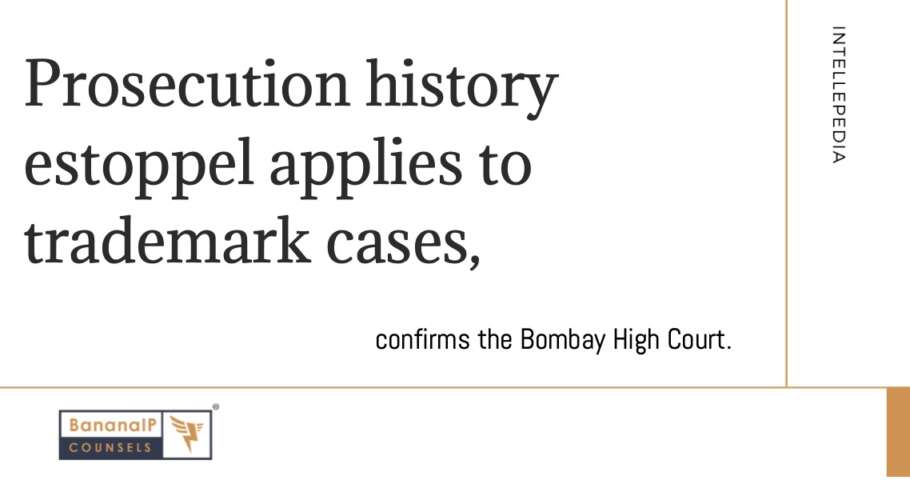The Bombay High Court recently ruled that the “prosecution history estoppel” principle applies to trademark cases. This means that statements made during the trademark registration process about similarities with other trademarks can be used against the applicant in future infringement lawsuits. The Court also emphasized the importance of disclosing all relevant information, including prosecution history, in trademark lawsuits. Continue Reading Prosecution History Estoppel applies to trademark cases, confirms the Bombay High Court.




